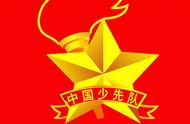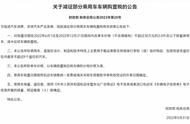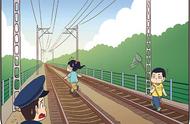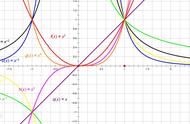Today, Easter's most recognizable traditions are perhaps those dealing with eggs and rabbits.
如今,复活节最广为人知的传统可能就是那些与彩蛋和兔子有关的传统了。
But how did the holiday get its start?
但这个节日是如何开始的呢?
Celebrations of the Christian festival of Easter have been documented as early as the 2nd century.
基督教复活节的庆祝活动早在公元 2 世纪就有记载。
Today the holiday is observed around the globe by thousands of Christian denominations.
如今,全球有数千个基督教派庆祝这一节日。
Easter commemorates the Resurrection of Jesus Christ on the third day after his Crucifixion about 30 CE.
复活节是为了纪念耶稣基督在大约公元 30 年受难后的第三天复活。
The Easter story is documented in the Bible, in the Gospels of Matthew, Mark, Luke, and John.
复活节的故事记载于《圣经》中的《马太福音》、《马可福音》、《路加福音》和《约翰福音》。
Each Gospel tells a similar story.
每卷福音书都讲述了一个相似的故事。
On the Sunday morning following Christ's Crucifixion on Good Friday, women went to visit Christ's tomb and found a stone rolled away from the tomb's entrance and Christ's body gone.
耶稣受难日被钉十字架后的星期天早上,女性去探访基督的坟墓,发现一块石头从坟墓的入口处滚开,基督的尸体不见了。
The women hurriedly shared the news with Christ's followers, the Apostles.
这些女人急忙把这个消息告诉了基督的追随者——使徒们。
After initial disbelief, the Apostles celebrated the Resurrection of Christ until his Ascension into heaven 40 days later.
在最初的怀疑过后,使徒们庆祝基督的复活,直到他在 40 天后升天。
Easter is one of the most important Christian festivals of the liturgical calendar.
复活节是基督教礼仪日历中最重要的节日之一。
For Christians, Easter not only celebrates Christ's Resurrection, but it also reveals God's plan for salvation and hope for one's own resurrection, a key belief shared across denominations.
对基督徒来说,复活节不仅庆祝基督复活,还揭示了上帝的救赎计划和对自己复活的希望,这也是各教派共有的重要信仰。
The holiday marks the end of Lent, a period of 40 days before Easter, not counting Sundays, during which Christians often practice acts of penance and fasting in preparation for Christ's Resurrection.
复活节标志着大斋节的结束,大斋节是复活节前的 40 天(不包括星期日),在此期间,基督徒通常会进行忏悔和斋戒,为基督的复活做准备。
Debates about when to celebrate the Resurrection of Christ caused major controversy in early Christianity.
关于何时庆祝基督复活的争论在早期基督教中引起了很大争议。
In 325 the Council of Nicaea decreed that Easter would be on the first Sunday following the first full moon after the spring equinox, which was then March 21.
公元 325 年,尼西亚大公会议颁布法令,将复活节定在春分后第一个满月之后的第一个星期日,即当时的 3 月 21 日。
Churches today use this basic formula, with March 21 as a fixed date for the spring equinox, to determine the date of Easter.
今天的教会使用这一基本公式,将 3 月 21 日作为春分的固定日期,来确定复活节的日期。
However, Eastern Orthodox churches usually celebrate Easter slightly later than Catholic and Protestant ones because they still calculate their liturgical year using the Julian, as opposed to the Gregorian, calendar.
不过,东正教会庆祝复活节的时间通常比天主教会和新教教会稍晚,因为他们仍然使用儒略历而不是公历来计算他们的教会年历。
A main component of many celebrations is the Easter Vigil, often taking place after sunset the night before Easter.
许多庆祝活动的主要组成部分是复活节守夜,通常在复活节前夜的日落后举行。
Easter celebrations vary across the world and across Christian denominations.
世界各地和各基督教派的复活节庆祝活动各不相同。
Orthodox traditions celebrate a similar Easter Vigil, while many North American Protestant churches participate in Easter sunrise services.
东正教传统庆祝类似的复活节守夜,而许多北美新教教堂则参加复活节日出仪式。
Today the holiday is widely identifiable by its secular traditions.
如今,复活节因其世俗传统而广为人知。
Although its origins are obscure, the practice of dyeing and decorating eggs has been practiced in both the Eastern Orthodox and Western churches since the Middle Ages.
虽然起源不详,但自中世纪以来,东正教和西方教会都有给彩蛋染色和装饰的习俗。
Rabbits became associated with Easter by Protestants starting in the 17th century.
从 17 世纪开始,新教徒将兔子与复活节联系在一起。
The Easter Hare in Germany hid eggs for children to find, or it laid its eggs in nests prepared by children.
德国的复活节兔子会把蛋藏起来让孩子们找,或者把蛋放在孩子们准备好的窝里。
Nests eventually changed to Easter baskets, and today children often look forward to receiving chocolate and other candies in their baskets on Easter.
巢窝最终变成了复活节篮子,如今,孩子们常常期待在复活节时收到装在篮子里的巧克力和其他糖果。
As many as 91 million chocolate bunnies are sold for Easter in the United States each year, making Easter not only one of the holiest days of the Christian calendar but also one of the sweetest.
在美国,每年复活节巧克力兔的销量高达 9100 万颗,这使得复活节不仅成为基督教日历中最神圣的日子之一,也成最甜蜜的日子之一。
New Words and Expressions 生词和短语
Easter noun [ C or U ]
/ˈiː.stər/
a Christian religious holiday to celebrate Jesus Christ's return to life after he was killed 复活节(基督教纪念耶稣复活的节日)
I get two weeks off school at Easter. 复活节我们学校放假两周。
recognizable adjective (UK usually recognisable)
/ˈrek.əɡ.naɪ.zə.bəl/
easy to recognize 可以认出的;可识别的;可认识的
The Eiffel Tower in Paris is an instantly recognizable landmark. 巴黎的埃菲尔铁塔是一眼就能认出的标志性建筑物。
document verb [ T ] UK
/ˈdɒk.jə.ment/
to record the details of an event, a process, etc.
记录,记载
His interest in cars has been well-documented (= recorded and written about) by the media. 他对汽车的兴趣在媒体的报道中都有详细的记载。
observe verb [ T ] UK
/əbˈzɜːv/
to watch carefully the way something happens or the way someone does something, especially in order to learn more about it
观察;观测;监视
The role of scientists is to observe and describe the world, not to try to control it.科学家的任务是观察和描述这个世界,而不是试图控制它。
[ question word ] He spent a year in the jungle, observing how deforestation is affecting local tribes. 他在丛林里住了一年,考察滥伐森林对当地部落造成了何种影响。
Children learn by observing adults.儿童通过观察成年人来学习。
C2 formal
to obey a law, rule, or custom 遵守,奉行(法律、规则或习俗)
People must observe the law. Nobody should be an exception.人们必须遵纪守法,谁都不应该例外。
The old people in the village still observe the local traditions. 村里的老人仍然遵守当地的传统。
Do you observe Passover? 你们过逾越节吗?
denomination noun UK
/dɪˌnɒm.ɪˈneɪ.ʃən/
a religious group that has slightly different beliefs from other groups that share the same religion
(某种宗教的)分支,派别
Protestantism and Roman Catholicism are both denominations of the Christian faith.新教和天主教都是基督教的分支。
commemorate verb [ T ] UK
/kəˈmem.ə.reɪt/
to remember officially and give respect to a great person or event, especially by a public ceremony or by making a statue or special building
(尤指举行公开仪式或竖立雕塑或专门建筑)纪念,缅怀
Gathered all together in this church, we commemorate those who lost their lives in the war.我们齐聚在这座教堂里,缅怀那些在大战中丧生的人们。
A statue has been built to commemorate the 100th anniversary of the poet's birthday.为纪念诗人百年诞辰建起了一尊雕像。
resurrect verb [ T ] UK
/ˌrez.ərˈekt/
to bring someone back to life
使复活,使起死回生
Almost all Christians believe that Jesus was resurrected from the dead.几乎所有的基督徒都相信耶稣死而复生。
to bring back something into use or existence that had disappeared or ended
重新使用;恢复;使重新流行
Several members of the party have resurrected the idea of constitutional change.该党几位党员重新提出了修改宪法的主张。
She has been busily trying to resurrect her Hollywood career.她一直奔忙,试图重振她的好莱坞演艺生涯。
resurrection noun [ U ] UK
/ˌrez.ərˈek.ʃən/
the act of bringing something that had disappeared or ended back into use or existence 复苏;复兴;恢复
the Resurrection noun [ S ] UK
/ˌrez.ərˈek.ʃən/
In the Christian religion, the Resurrection is Jesus Christ's return to life on the third day after his death, or the return of all people to life at the end of the world.
(基督教所宣扬的)耶稣复活; 最后审判日全部死者的复活
crucifixion noun UK
/kruː.səˈfɪk.ʃən/
the act of crucifying someone
钉死在十字架上
[ C ] a painting or other piece of art representing the crucifixion of Jesus Christ
耶稣受难画(或其他艺术表现手法)
the Crucifixion
the death of Jesus Christ on a cross 耶稣受难
gospel noun U
/ˈɡɒs.pəl/
any of the four books of the Bible that contain details of the life of Jesus Christ
福音书(《圣经》中记载耶稣生平的四福音书之一)
St Mark's Gospel/the Gospel according to St Mark《马可福音》
the gospel [ S ]
the teachings of Jesus Christ
福音(指耶稣的教诲)
to preach/spread the gospel 宣讲/传布福音
Good Friday noun [ C usually singular ] UK
/ˌɡʊd ˈfraɪ.deɪ/
the Friday before Easter Sunday, the day in the Christian religion on which the death of Jesus is especially remembered (基督徒认为耶稣受难的日子,复活节前的星期五)受难节,耶稣受难瞻礼
entrance noun UK
/ˈen.trəns/
a door, gate, etc. by which you can enter a building or place
入口; 大门(口);通道
There are two entrances - one at the front and one around the back. 有两个入口,一个在前面,另一个在后面。
Opposite exit (LEAVING)
C2 [ C usually singular ]
the act of coming onto a stage, by an actor or dancer
(演员的)入场,登场
He makes a spectacular entrance in act two draped in a gold sheet. 在第二幕,他身披金袍上场,光彩炫目。
apostle noun UK
/əˈpɒs.əl/
someone who strongly supports a particular belief or political movement
(信仰或政治运动的)倡导者,鼓吹者,先驱
an apostle of world peace/liberty 世界和平/自由的倡导者
the Apostles [ plural ]
the group of early Christians who travelled to different places telling people about Jesus Christ:
Pentecost is the day the Holy Spirit descended on the Apostles.
initial adjective [ before noun ] UK
/ɪˈnɪʃ.əl/
of or at the beginning
开始的,最初的
My initial surprise was soon replaced by delight.我最初的惊讶很快变成了兴奋。
Initial reports say that seven people have died, though this has not yet been confirmed. 最初的报道说有7人丧生,但这一消息还未得到证实。
disbelief noun [ U ] UK
/ˌdɪs.bɪˈliːf/
the feeling of not being able to believe that something is true or real
不相信,怀疑
His response was one of complete disbelief. 他的反应是完全不相信。
She shook her head in disbelief. 她怀疑地摇了摇头。
liturgical adjective UK
/lɪˈtɜː.dʒɪ.kəl/
relating to (a particular set of) the words, music, and actions used in ceremonies in some religions, especially Christianity 有关(基督教等宗教)礼拜仪式的
He has taught classes on liturgical worship.他教过崇拜礼仪。
Pope Pius V published the liturgical text that would be used to celebrate Mass for the next 400 years. 教宗庇护五世颁布的礼仪祭文在其后的四百年里一直在庆祝弥撒上使用。
reveal verb [ T ] UK
/rɪˈviːl/
to make known or show something that is surprising or that was previously secret
揭露;泄露;透露
He was jailed for revealing secrets to the Russians.他因为向俄国人泄密而被监禁。
[ that ] Her biography revealed that she was not as rich as everyone thought.她的自传透露她并非像大家所想象的那样富有。
[ question word ] He would not reveal where he had hidden her chocolate eggs.他就是不说他把她的巧克力蛋藏在哪里了。
to allow something to be seen that, until then, had been hidden
使显露;展现;显示
A gap in the clouds revealed the Atlantic far below. 从云缝中可以看到远在下方的大西洋。
salvation noun UK
/sælˈveɪ.ʃən/
(a way of) being saved from danger, loss, or harm
救助(途径);解救(办法)
After the diagnosis, getting to know Mary was his salvation.调查分析一番之后,他意识到结识玛丽是他唯一的出路。
a marriage beyond salvation
[ U ] In the Christian religion, salvation of a person or their spirit is the state of being saved from evil and its effects by the death of Jesus on a cross (基督教中的)救度,灵魂得救
The Gospel message is one of personal salvation. 福音消息是人们灵魂得救的消息。
Lent noun [ U ] UK
/lent/
in the Christian religion, the 40 days before Easter, a period during which, for religious reasons, some people stop doing particular things that they enjoy
(基督教的)大斋节
The children have promised to give up sweets for Lent. 孩子们答应在大斋节期间不吃糖果。无法挽回的婚姻
penance noun [ C or U ] UK
/ˈpen.əns/
an act that shows that you feel sorry about something that you have done, sometimes for religious reasons
悔过,悔罪;补赎
As a penance, she said she would buy them all a box of chocolates.为了表示歉意,她说她要给他们每个人都买一盒巧克力。
They are doing penance for their sins. 他们正在为自己的罪过而忏悔。
fast noun [
/fæst/
a period of time when you eat no food 禁食期; 斋戒期
Hundreds of prisoners began a fast in protest about prison conditions. 数百名犯人开始绝食,抗议监狱条件太差。
decree verb [ T ] UK
/dɪˈkriː/
to officially decide or order that something must happen
颁布法令,下达政令; 发出命令
They decreed an end to discrimination on grounds of age. 他们下令不准再有年龄歧视。
[ that ] After the earthquake, the government decreed that all new buildings must be built according to the new standards. 地震之后,政府下达政令,要求所有新建楼房必须按照新的标准施工。
equinox noun [ C ] UK
/ˈek.wɪ.nɒks/
either of the two occasions in the year when day and night are of equal length
昼夜平分时;春分;秋分
the vernal / autumn equinox 春/秋分
Protestant noun [ C ] UK
/ˈprɒt.ɪ.stənt/
a member of the parts of the Christian Church that separated from the Roman Catholic Church during the 16th century 新教徒
catholic adjective formal UK
/ˈkæθ.əl.ɪk/
including many different types of thing 广泛的;包罗万象的
As a young person he had more catholic tastes than he does now. 他年轻的时候兴趣比现在要广泛得多。
Catholic noun [ C ], adjective UK
/ˈkæθ.əl.ɪk/
Roman Catholic
天主教(徒)
Is he (a) Catholic? 他是天主教徒吗?
a Catholic school/church 天主教学校/教堂
,












